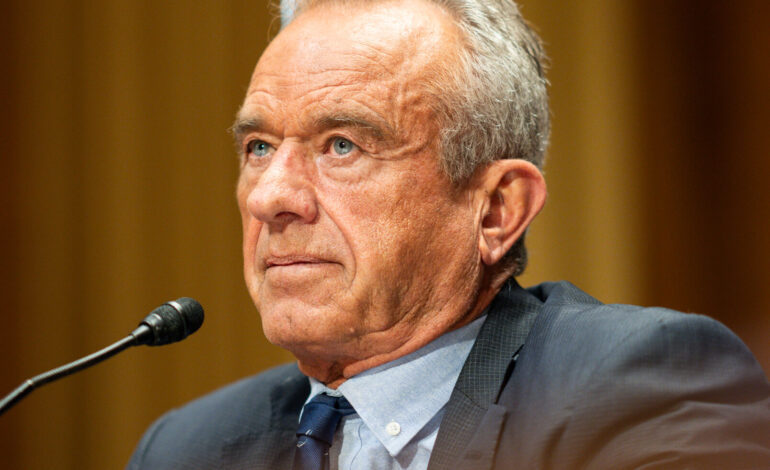Robert F. Kennedy Jr. Unveils Childhood Health Report Amid Ambitious Agenda

Robert F. Kennedy Jr. has officially released a childhood health report that outlines his vision for improving public health in the United States. This report builds upon a draft that was leaked last month, providing deeper insights into his “Make America Healthy Again” agenda. The initiative aims to address various health issues affecting children, from nutrition to mental well-being.
The report highlights both the ambitious goals of Kennedy’s agenda and its limitations. It emphasizes the need for comprehensive reforms in healthcare policies to ensure better health outcomes for children across the country. Key proposals include increasing access to preventive care, improving nutrition in schools, and enhancing mental health services.
Key Findings and Recommendations
Among the findings, the report stresses that childhood obesity rates have reached alarming levels, with nearly 20% of children classified as obese, according to data from the Centers for Disease Control and Prevention (CDC). The report calls for a multi-faceted approach to combat this issue, including educational programs for parents and children about healthy eating habits.
Kennedy’s report also underscores the importance of mental health, particularly in the wake of the COVID-19 pandemic. Data indicates that approximately 1 in 6 children between the ages of 6 and 17 experience a mental health disorder. The recommendations include increased funding for mental health resources in schools and community centers.
Additionally, the report discusses the need for improved vaccination rates among children, highlighting disparities that exist in certain regions of the country. Kennedy advocates for policies that encourage vaccination while ensuring that parents have access to accurate information about vaccine safety.
Public and Political Response
The release of the report has generated mixed reactions from public health experts and political commentators. Some praise Kennedy’s commitment to addressing critical health issues, while others express skepticism regarding the feasibility of his proposals. Critics argue that the report lacks concrete implementation strategies and funding sources necessary to support the ambitious goals outlined.
Kennedy, a well-known figure in health advocacy, has faced scrutiny in the past for his controversial views on vaccines. Nevertheless, he remains a prominent voice in the discussion around public health, particularly as he gears up for his campaign as a presidential candidate in the upcoming elections.
In summary, the childhood health report from Robert F. Kennedy Jr. presents a comprehensive overview of key health issues affecting children in the United States. While it outlines a vision for reform, the effectiveness of his proposals will depend on public support and political will. As the nation navigates these pressing health challenges, the report serves as a reminder of the importance of prioritizing children’s health in policy discussions.






